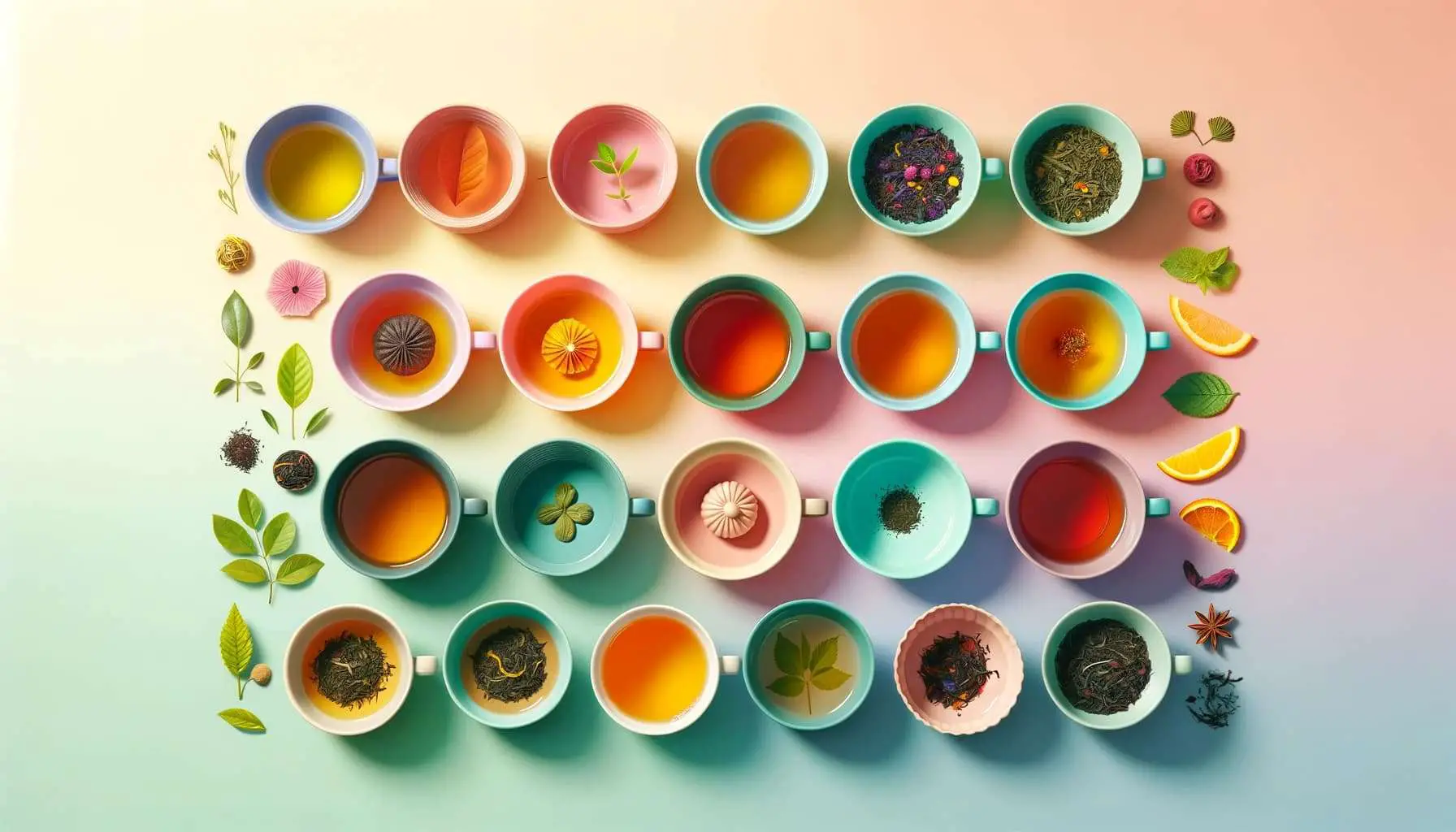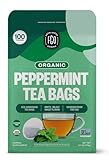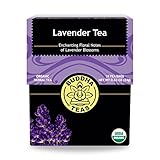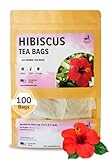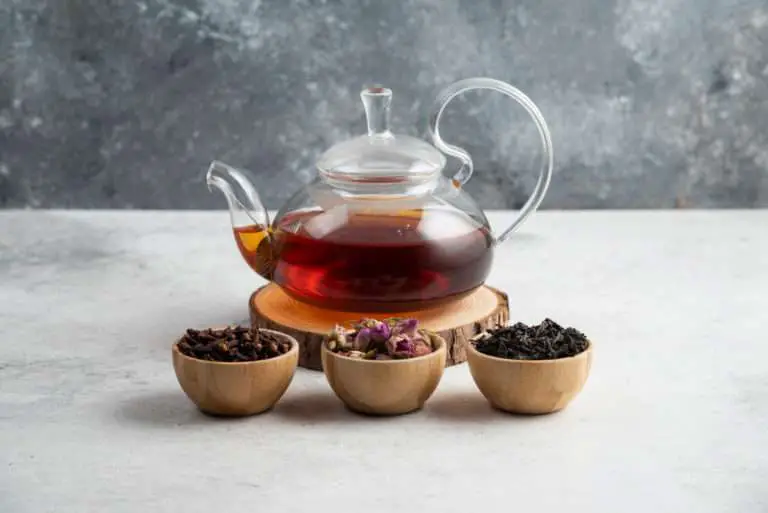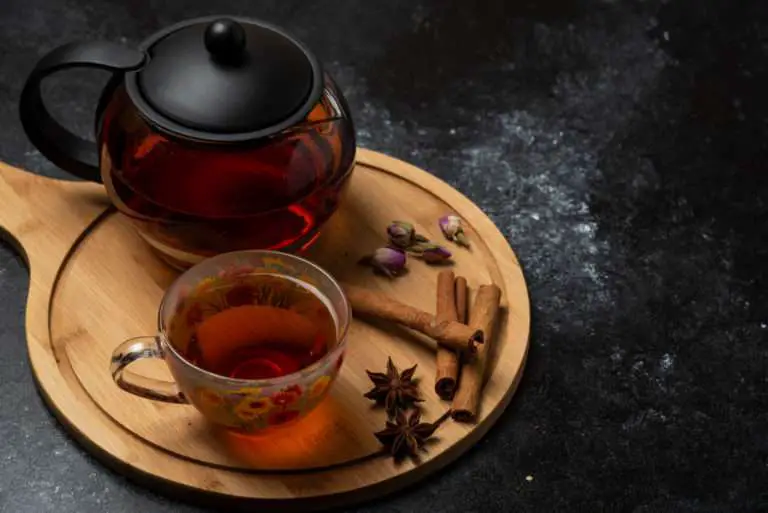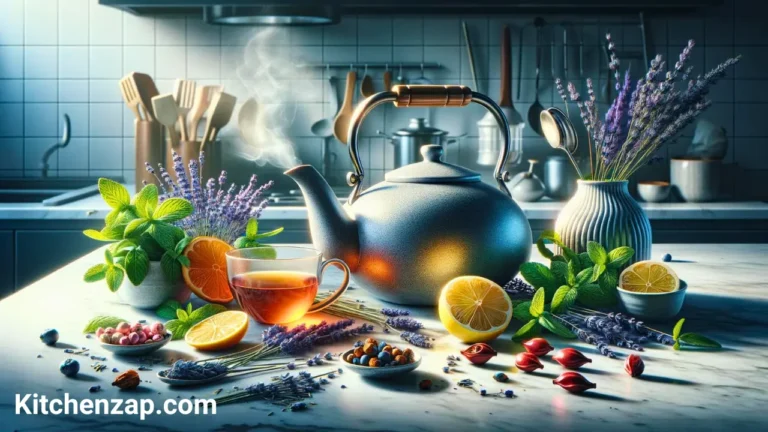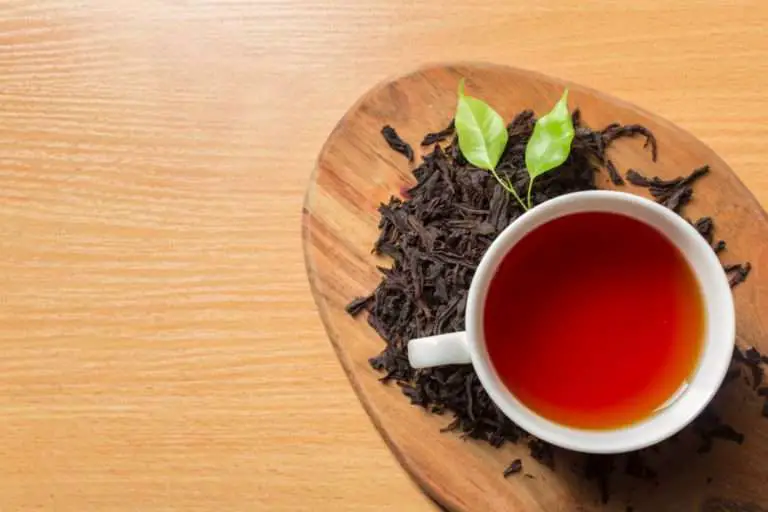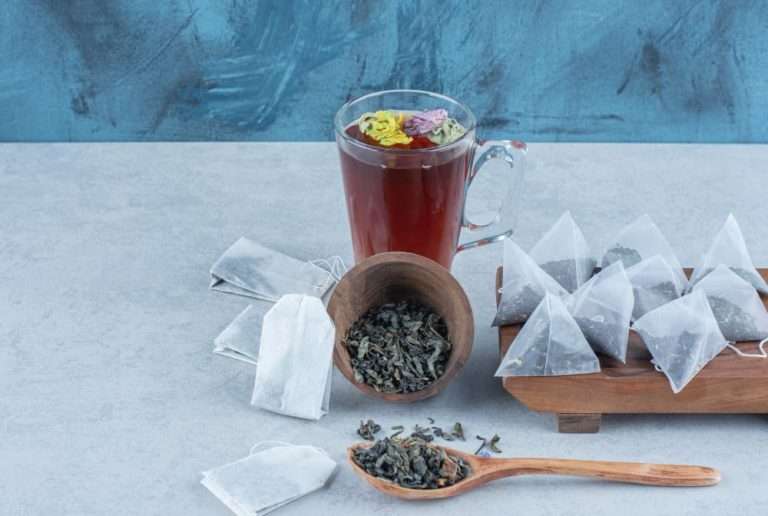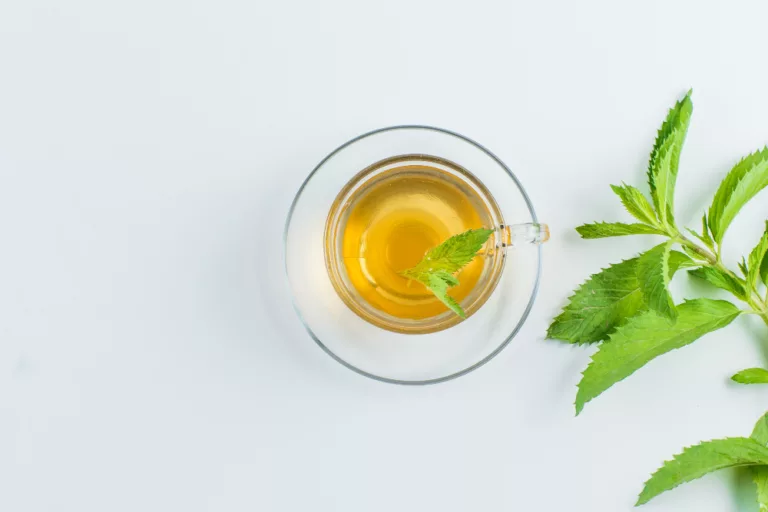11 Best Caffeine-Free Herbal Teas You Should Try
With the growing interest in reducing caffeine intake, many people are discovering the wide world of delicious caffeine-free herbal teas.
These herbal teas are naturally free of caffeine and provide a flavorful, soothing, and healthy alternative to traditional caffeinated tea.
Caffeine-free herbal teas come in an astonishing range of options. They are made from herbs, spices, flowers, fruits, seeds, and roots.
Each blend offers its own unique flavor profile, aromas, and health benefits. From floral chamomile to spicy ginger, the variety is extraordinary.
In this post, we will explore some of the top caffeine-free herbal tea options. Whether you are looking to cut back on caffeine or just want to try some new tea flavors, these marvelous herbal teas are sure to satisfy and delight your taste buds.
Read on to discover 11 of the best caffeine-free herbal teas you simply must try!
What are Caffeine-Free Herbal Teas?
- Caffeine-free herbal teas are made from plants other than the tea plant. Some examples are:
- Flowers like chamomile, lavender, hibiscus
- Fruits like apple, orange, lemon
- Herbs like mint, basil, rosemary
- Spices like cinnamon, ginger, cardamom
- They do not use leaves of the Camellia sinensis plant that is used for regular black, green, white and oolong teas.
- So herbal teas are naturally free of caffeine. They provide caffeine-free options compared to normal tea.
- People drink herbal teas for their different flavors, scents and health benefits.
- Herbal teas can be served hot or chilled. You can enjoy them at any time of day.
Why Choose Caffeine-Free Herbal Teas?
- You may want to avoid caffeine for health reasons. For example, if you have anxiety, insomnia, or high blood pressure.
- Some people are very sensitive to caffeine. Even small amounts can cause jitters and headaches. Herbal tea gives caffeine-free options.
- Herbal teas create a calming and relaxing experience. Many have soothing properties to reduce stress and anxiety.
- Herbal teas provide healthy antioxidants to fight inflammation and disease. But without the stimulating effects from caffeine.
- Other reasons to choose herbal tea:
- When pregnant or breastfeeding
- For children and teenagers
- For better sleep
- When trying to limit caffeine intake
- For natural herbal remedies
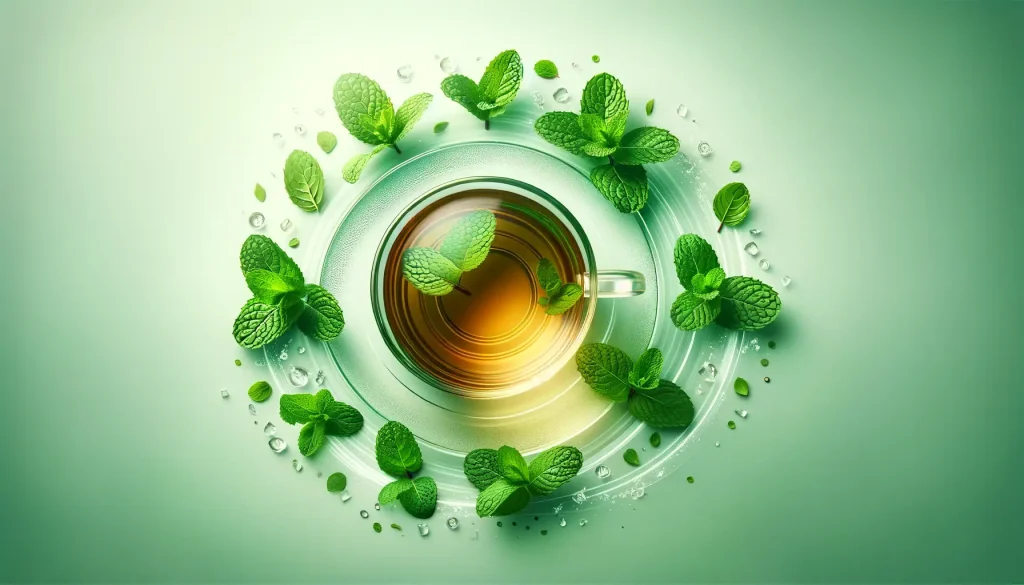
Benefits of Caffeine-Free Herbal Teas
- Help you relax and sleep better. Great for winding down at night.
- Provide healthy antioxidants that help fight disease and inflammation.
- Contain beneficial vitamins and minerals.
- Support digestion. Help reduce upset stomach, nausea, and bloating.
- Boost immunity. Help your body fight off illnesses and infections.
- Benefit heart health by lowering blood pressure and cholesterol.
- Hydrate the body as much as water does. Help you stay hydrated.
- Offer a soothing and comforting drinking experience. Help you destress.
- Act as natural herbal remedies for various ailments.
Who Can Benefit from Caffeine-Free Herbal Teas?
- People who are limiting their caffeine intake for any reason.
- Those who suffer from anxiety, insomnia, or other sleep problems.
- Pregnant and breastfeeding women – caffeine is not recommended.
- Children and teenagers who do not need stimulants.
- Anyone looking for natural herbal remedies for common ailments.
- People who get headaches or jitters from caffeine.
- Those with high blood pressure, heart conditions, or stomach issues.
- Anyone seeking a relaxing and calming beverage experience.
- People who simply want an antioxidant-rich, non-caffeinated drink option.
Caffeine-free herbal teas can benefit almost anyone looking for a healthy, soothing substitute for regular caffeinated teas.
Overview of 11 Best Herbal Teas to Try
There are so many delicious caffeine-free herbal teas to explore! Here are 11 of the most popular and best options to try:
- Chamomile – Floral, soothing tea to calm the mind and body
- Peppermint – Refreshing mint tea that aids digestion
- Hibiscus – Tart, tangy tea full of antioxidants
- Rooibos – Nutty tea that helps reduce stress
- Ginger – Spicy ginger tea to ease nausea
- Turmeric – Earthy, anti-inflammatory turmeric tea
- Lavender – Light floral tea to relax and sleep better
- Apple – Sweet apple tea with vitamin C
- Lemon balm – Uplifting, zesty lemon tea
- Raspberry leaf – Berry tea that supports women’s health
- Dandelion – Slightly bitter dandelion tea for detoxing
Each of these herbal teas has its own unique flavor, aromas and health benefits to enjoy. Keep reading to learn more about these 11 best caffeine-free options.
- CHAMOMILE TEA BAGS – 100 Tea Bags filled with premium chamomile from Egypt.
1. Chamomile Tea: Soothing and Calming Properties, Floral Flavor, Aids Sleep and Reduces Anxiety
Chamomile tea is one of the most popular herbal teas, cherished for its soothing and calming properties. It has a light and pleasant floral flavor.
Soothing, Calming Properties
Chamomile tea contains an antioxidant called apigenin which binds to GABA receptors and has a tranquilizing effect. It is effective at relieving anxiety, stress, and insomnia.
Floral Flavor and Aroma
Chamomile tea smells and tastes delicately floral, akin to freshly cut chamomile flowers and apple notes. It has a smooth, mildly sweet taste.
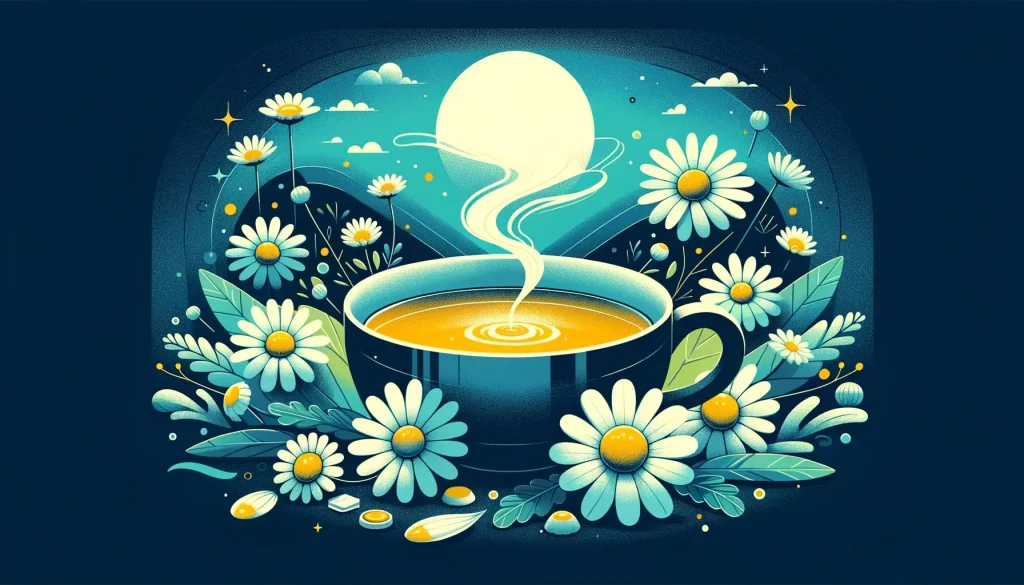
Aids Sleep and Reduces Anxiety
The mild sedative effects of chamomile tea promotes sleep. It is commonly taken before bed to combat insomnia. Chamomile also alleviates anxiety, panic attacks, depression and PMS symptoms.
Other Benefits
Additional benefits of drinking chamomile tea include:
- Treating stomach cramps and irritable bowel syndrome
- Providing relief from muscle spasms
- Healing skin irritations, wounds and burns
- Preventing bone loss and strengthening bones
How to Brew Chamomile Tea
Use 2-3 grams of dried chamomile flowers per 8 oz cup of hot water. Steep for 5-6 minutes before straining. Add honey, lemon or milk if desired.
With its mellow floral taste and aromas along with tranquilizing properties, chamomile is regarded as an excellent sleep-promoting and relaxing caffeine-free herbal tea option.
2. Peppermint Tea: Invigorating and Refreshing, Aids Digestion and Headaches, Minty Flavor
Peppermint tea is an energizing caffeine-free herbal tea known for its refreshing minty flavor and health benefits for digestion and headaches.
Invigorating and Refreshing
The menthol in peppermint provides a cooling, rejuvenating sensation that is uplifting yet calming. It improves focus and boosts overall feelings of energy.
Helps Digestion and Headaches
Peppermint tea facilitates healthy digestion by relaxing gastrointestinal muscles. It also relieves nausea, gas, bloating, and stomach cramps. The menthol can alleviate headaches when consumed or applied topically.
- PEPPERMINT LEAF TEA BAGS – 100 Tea Bags filled with premium peppermint leaf from USA.
Minty Flavor
Peppermint tea tastes robustly minty with long-lasting fresh flavors and a cool aftertaste. It has a higher menthol content than spearmint. The pungency can be mellowed with honey.
Other Benefits.
Other benefits of drinking peppermint tea include:
- Relieving sinus congestion and coughs
- Calming muscle spasms and menstrual cramps
- Boosting immunity with antiviral effects
- Improving bad breath
Brewing Peppermint Tea
Use 1 teaspoon of fresh or dried peppermint leaves per cup of boiling water. Steep for 5-7 minutes. Drink peppermint tea after meals or when needing an energy boost.
With its refreshing minty kick and variety of benefits, peppermint tea is an invigorating caffeine-free herbal tea that promotes digestion and overall wellness.
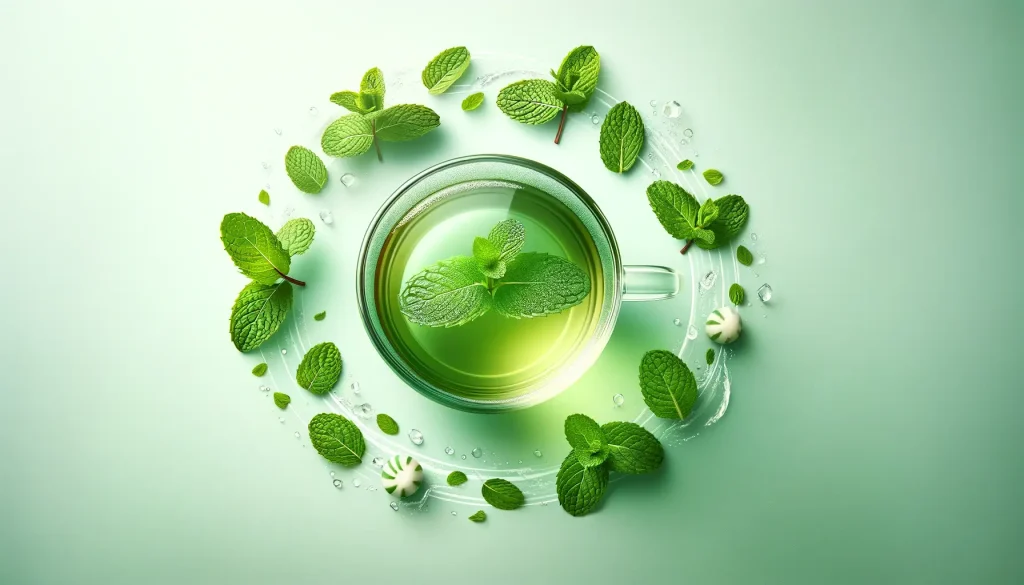
3. Rooibos Tea: Nutty, Earthy Flavor, High in Minerals, and Reduces Stress
Rooibos tea is a caffeine-free herbal tea that is native to South Africa. It is made from the leaves of the red bush plant, Aspalathus linearis.
Rooibos tea has a nutty, earthy flavor and is a good source of several minerals, including iron, magnesium, and potassium. It is also known for its stress-relieving properties.
Nutty, Earthy Flavor
Rooibos tea has a unique nutty, earthy flavor that is often described as being similar to caramel or vanilla.
This flavor is due to the presence of antioxidants called flavonoids in the tea leaves. Flavonoids are also responsible for many of the health benefits of rooibos tea.
High in Minerals
Rooibos tea is a good source of several minerals, including iron, magnesium, and potassium. Iron is important for carrying oxygen throughout the body.
Magnesium is important for muscle function, nerve function, and blood pressure regulation. Potassium is important for fluid balance and blood pressure regulation.
Reduces Stress
Rooibos tea is known for its stress-relieving properties. This is due to the presence of an amino acid called aspalathin in the tea leaves. Aspalathin has been shown to reduce the production of the stress hormone cortisol.
Other Health Benefits
In addition to its stress-relieving properties, rooibos tea has been shown to have a number of other health benefits, including:
- TWININGS ROOIBOS TEA: When you want to invite one the world’s most refreshing wellness teas into your home or office,…
- Boosting the immune system
- Reducing inflammation
- Improving digestion
- Lowering cholesterol levels
- Protecting against heart disease
- Regulating blood sugar levels
- Reducing the risk of cancer
How to Make Rooibos Tea
Rooibos tea is easy to make. Simply brew the tea leaves in hot water for 5-10 minutes. Rooibos tea can be enjoyed hot or cold. It can also be used to make iced tea, tea lattes, and other tea-based drinks.
Where to Buy Rooibos Tea
Rooibos tea is available at most grocery stores and health food stores. It can also be purchased online from a variety of retailers.
Rooibos tea is a healthy and delicious caffeine-free herbal tea that offers a variety of health benefits. It is a good source of minerals, including iron, magnesium, and potassium.
It is also known for its stress-relieving properties. If you are looking for a healthy and delicious way to enjoy a cup of tea, be sure to try rooibos tea
4. Ginger Tea: Warming and Spicy Flavor, Eases Nausea and Inflammation, Supports Immunity
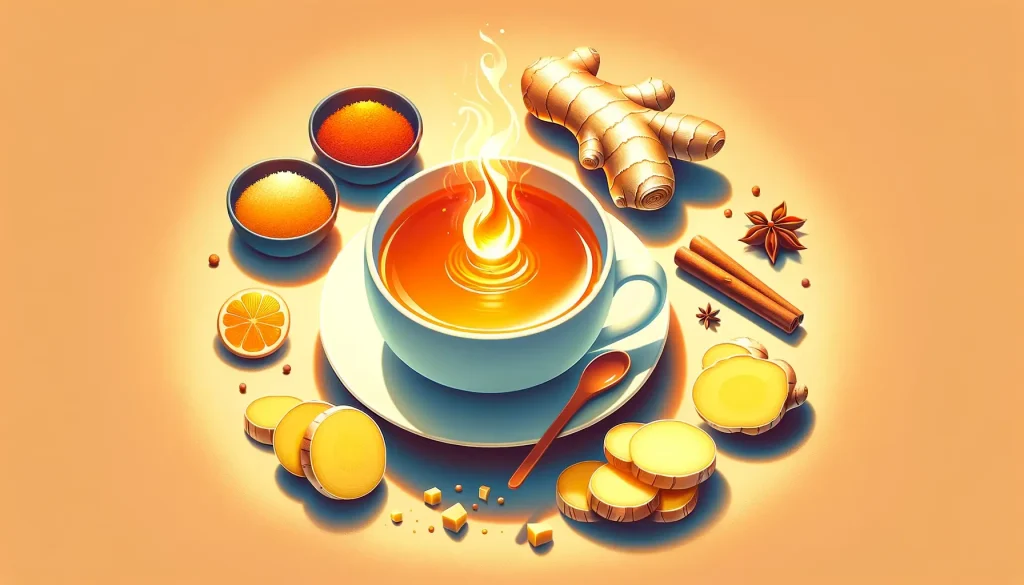
Ginger tea is a spicy and flavorful caffeine-free herbal tea made from ginger root. It is known for its warming flavor and aromas as well as its health benefits for nausea, inflammation, and immunity.
Warming and Spicy Flavor
Ginger tea has a warming, spicy, and zesty flavor due to the natural oils in ginger. The intensity of the ginger flavor can range from mild to very spicy depending on the amount of ginger used. It makes for an energizing yet comforting caffeine-free tea option.
Eases Nausea and Inflammation
Ginger tea is commonly used to help reduce nausea from motion sickness, pregnancy, chemotherapy, and more. Its anti-inflammatory properties also help relieve joint and muscle pain associated with arthritis or injuries.
Supports Immunity
Ginger tea contains antioxidants like gingerol that can help boost the immune system and fight off illnesses. Regularly drinking ginger tea may help prevent and shorten the duration of colds and flu.
Other Benefits
Other potential benefits of ginger tea include:
- Improving digestion
- Lowering blood sugar
- Reducing menstrual cramps
- Increasing circulation
- GINGER TEA BAGS – 100 Tea Bags filled with premium ginger root from India.
How to Make Ginger Tea
To make ginger tea at home, simply boil sliced ginger root in water for 5-10 minutes. Sweeten with honey if desired. You can also use dried ginger or tea bags for convenience.
With its spicy flavor and aroma, ginger tea is a warming and invigorating caffeine-free herbal tea option that offers a variety of potential health benefits. It may help ease nausea, inflammation, and support immunity.
5. Turmeric Tea: Anti-Inflammatory Properties, Earthy and Bittersweet Taste, Boosts Overall Health
Turmeric tea is a caffeine-free herbal tea made from the bright yellow turmeric spice. It is acclaimed for its anti-inflammatory effects and earthy, bittersweet flavor.
Anti-Inflammatory Properties
The curcumin compound in turmeric has powerful anti-inflammatory properties. Drinking turmeric tea regularly can help reduce inflammation associated with arthritis, injuries, digestive issues, and autoimmune disorders.
Earthy, Bittersweet Taste
Turmeric tea has an earthy, mildly bitter taste that some compare to mustard or horseradish. The intensity depends on the amount of turmeric used. Many enjoy combining it with lemon, ginger, honey or milk.
Boosts Overall Health
Studies suggest turmeric can protect against cancer, Alzheimer’s, heart disease and more due to its antioxidant content. Turmeric tea is an excellent way to boost overall health.
- SPICE OF LIFE GREEN TEA: The unmistakable, earthy aroma of turmeric blends perfectly with ginger, cinnamon and pure…
Other Benefits
Other potential benefits of turmeric tea include:
- Improving digestion
- Cleansing the liver
- Purifying the blood
- Lowering cholesterol
- Regulating blood sugar levels
Preparing and Drinking Turmeric Tea
To make basic turmeric tea, simmer turmeric powder or fresh root in hot water or milk for 5-10 minutes. Strain before drinking. Have it on its own or with lemon, ginger or honey.
With its earthy, spicy taste and bounty of health benefits, turmeric tea is a warming and flavorful caffeine-free herbal tea option.
Its anti-inflammatory effects and ability to boost overall wellness make it a smart addition to your tea rotation.
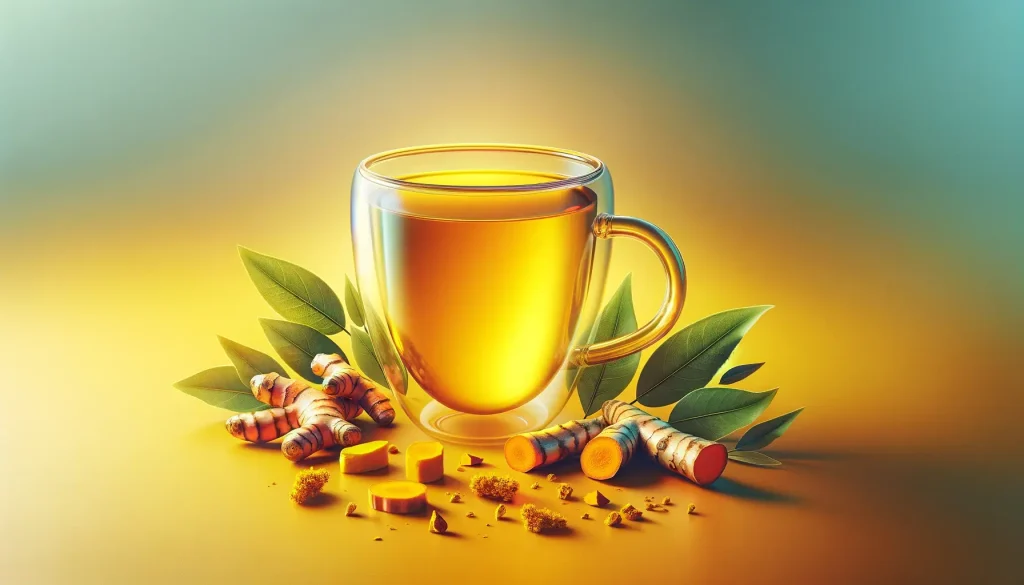
6. Lavender Tea: Floral Aroma and Taste, Relaxing and Calming Effects, Aids Sleep
Lavender tea is a soothing caffeine-free herbal tea made from the dried purple lavender flower. It is loved for its light floral flavor and aromas as well as its calming properties.
Floral Aroma and Taste
Lavender tea features a light, floral taste and aroma reminiscent of the fresh blooming lavender plant. It is more subtle than perfume-y. The flavor is not overpowering.
Relaxing and Calming Effects
Lavender tea has long been used to gently ease anxiety and nervousness. Its calming effects promote relaxation in body and mind, making it a perfect nighttime tea.
Aids Sleep
The mild sedative effects of lavender tea help initiate sleep and combat insomnia. Lavender compounds interact with GABA receptors in the brain to promote restful sleep.
- Ingredients: Organic Lavender
Other Benefits
Drinking lavender tea may also:
- Lower blood pressure
- Improve mood
- Reduce headaches
- Aid digestion
- Soothe coughs
Brewing Lavender Tea
Add 1-2 teaspoons of dried lavender flowers to a tea infuser and steep in hot water for 5-7 minutes. Add honey if desired. You can also find pre-made lavender tea bags.
With its soft floral notes and relaxing properties, lavender tea is the perfect caffeine-free nighttime tea to unwind, de-stress and drift off to sleep.
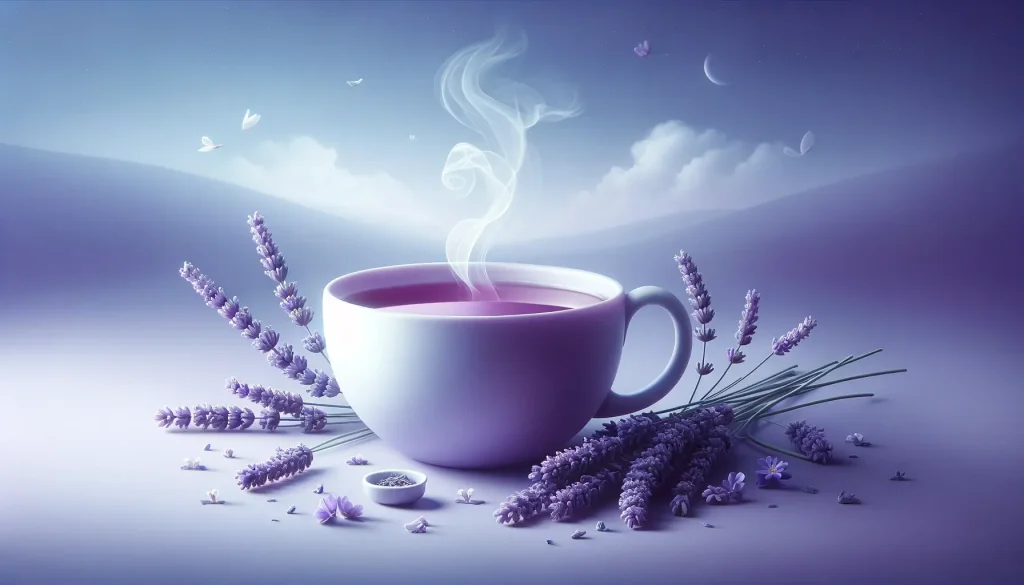
7. Apple Tea: Sweet, Crisp Apple Flavor, Antioxidants and Vitamin C, Supports Immunity
Apple tea is a refreshing caffeine-free herbal tea that offers the sweet taste of apples along with healthy antioxidants and immune-boosting benefits.
Sweet, Crisp Apple Flavor
Apple tea is made from dried apple slices, peel, or leaves. It infused water with the delicious flavors and aromas of fresh apples. The taste is sweet, crisp, and slightly tart.
Antioxidants and Vitamin C
Apples contain beneficial plant compounds like quercetin that act as antioxidants in the body to neutralize harmful free radicals and reduce inflammation. They are also high in immune-boosting vitamin C.
Supports Immunity
The antioxidants and vitamin C content in apple tea can strengthen the immune system to help prevent colds, flu, and infections. The bioflavonoids in apples also exhibit antiviral effects.
Other Benefits
Regularly drinking apple tea may also:
- Improve heart health
- Regulate blood sugar
- Boost digestion
- Support healthy bones
Brewing Apple Tea
Simmer dried apple pieces in water for 15-20 minutes. Strain and sweeten with honey if desired. Cinnamon sticks complement the flavor.
With a sweet, crisp apple taste and plenty of vitamins, apple tea is a delicious way to strengthen immunity and improve overall health. It makes for an invigorating caffeine-free herbal tea.
8. Lemon Balm Tea: Zesty, Lemony Flavor, Uplifting and Stress-Relieving, Improves Sleep and Cognition
Lemon balm tea is an uplifting caffeine-free herbal tea made from the lemon-scented leaves of the Melissa officinalis plant. It offers a zesty lemon flavor and a variety of health benefits.
Zesty, Lemony Flavor
True to its name, lemon balm tea delivers a refreshing lemony flavor and aroma reminiscent of lemon zest. It tastes vibrant yet delicate at the same time. The lemon scent is energizing.
Uplifting and Stress-Relieving
Lemon balm has been shown to boost mood, banish stress and promote relaxation. The rosmarinic acid is thought to interact with GABA receptors in the brain, resulting in calming effects.
Improves Sleep and Cognition
Studies suggest lemon balm can reduce insomnia, promote deep sleep and improve cognitive performance. It may also boost memory and focus when used regularly.
Other Benefits
Drinking lemon balm tea may also help:
- Treat cold sores
- Ease digestion
- Alleviate anxiety
- Reduce nausea
- Improve heart health
Making Lemon Balm Tea
Place lemon balm leaves in a teapot and pour hot water over them. Let steep for 5-7 minutes before straining and enjoying. Add lemon juice or honey to taste.
With its refreshing lemon flavor and bounty of benefits, lemon balm tea is an uplifting yet relaxing caffeine-free herbal tea option. It promotes improved sleep, cognition, and overall well-being.
9. Raspberry Leaf Tea: Tart Berry Flavor, Supports Female Health, Rich in Iron and Vitamins
Raspberry leaf tea is an herbal tea made from the nutrient-rich leaves of the raspberry plant. It offers a delicious tart berry taste along with a variety of benefits, especially for female health.
Tart Berry Flavor
Raspberry leaf tea brews a beautiful reddish hue and delivers a refreshing fruity flavor reminiscent of raspberries. It tastes pleasantly tangy, tart and sweet.
- Raspberry Leaf Tea Bags: Yogi Raspberry Leaf tea is a gentle way to support the reproductive system; enjoy an…
Supports Female Health
Raspberry leaf is a traditional women’s herb. It contains fragarine which tones the uterus and may help prepare for labor. It is also thought to ease PMS symptoms.
Rich in Iron, Vitamins
Raspberry leaves offer ample amounts of vitamins and minerals like vitamin C, vitamin E, calcium, and iron. This helps nourish the female reproductive system.
Other Benefits
Drinking raspberry leaf tea may also:
- Alleviate menstrual cramps
- Reduce inflammation
- Boost immunity
- Treat diarrhea
- Aid digestion
Brewing Raspberry Leaf Tea
Steep 1-2 teaspoons of dried raspberry leaves in hot water for 5-7 minutes. Strain and sweeten with honey if desired. Enjoy hot or chilled.
With its tasty berry flavor and wealth of nutrients, raspberry leaf tea is the perfect caffeine-free option for supporting women’s health and well-being.
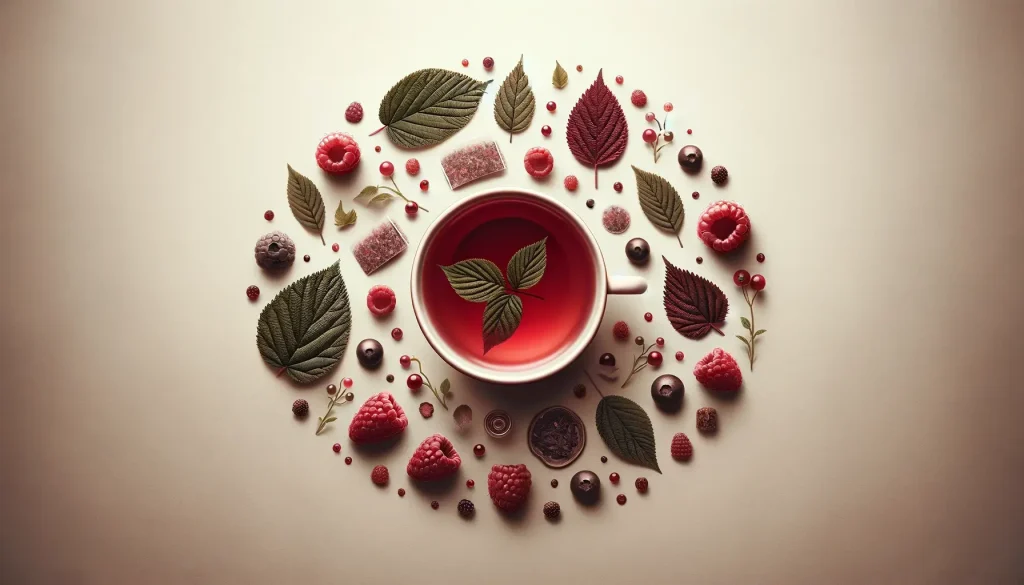
10. Dandelion Tea: Slightly Bitter, Earthy Taste, Diuretic Properties, Supports Liver Health
Dandelion tea is an herbal tea made from the roots and leaves of the dandelion plant. It has a characteristic bitter, earthy flavor and provides benefits for detoxification and liver health.
Slightly Bitter, Earthy Taste
Dandelion tea tastes mildly bitter and earthy, similar to dark leafy greens. The bitterness comes from terpenes and sesquiterpene lactones present in dandelion. Some sweeten dandelion tea with honey or lemon.
Diuretic Properties
Dandelion acts as a natural diuretic, increasing urine output to flush out toxins and excess sodium. This makes it helpful for treating water retention, bladder infections, and kidney stones.
Supports Liver Health
Dandelion tea helps cleanse the liver and stimulate the flow of bile. Dandelion’s antioxidant content also protects the liver from toxins and helps regenerate liver tissue.
- ROASTED DANDELION ROOT TEA BAGS – 100 Tea Bags filled with premium roasted dandelion root from Croatia.
Other Benefits
Drinking dandelion tea may also:
- Lower cholesterol
- Treat heartburn
- Reduce joint pain
- Fight cancer cells
- Aid weight loss
How to Make Dandelion Tea
Steep dried dandelion root or leaves in hot water for 5-10 minutes. Can be enjoyed hot or cold. Add lemon to mellow the bitterness.
With its gentle diuretic effect and liver support, dandelion root tea is an important caffeine-free herbal tea for detoxification and improving health.
11. Hibiscus Tea: Tangy and Tart Taste, Rich in Antioxidants, Supports Heart Health
Hibiscus tea is made from the vibrant red hibiscus flower and is known for its tangy, tart flavor and health benefits, especially for heart health.
Tangy, Tart Taste
Hibiscus tea has a rich deep red hue and a refreshing sour, cranberry-like taste, followed by a slightly sweet aftertaste. The edgy tartness comes from citric acid and anthocyanins.
Rich in Antioxidants
Hibiscus is extremely high in antioxidants like anthocyanins that neutralize free radicals and reduce oxidative stress on cells and tissues.

Supports Heart Health
Studies show hibiscus tea can lower blood pressure and cholesterol, helping protect against heart disease. The anthocyanins increase HDL and lower LDL levels.
Other Benefits
Additional benefits of drinking hibiscus tea include:
- Boosting liver health and function
- Aiding weight loss by blocking starch absorption
- Acting as a mild diuretic to flush out excess fluids
- Containing vitamin C to support immunity
- 100 ECO-CONSCIOUS TEA BAGS: The hibiscus tea is packaged in the United States. Our premium tea bags are constructed of…
Brewing Hibiscus Tea
Add 1-2 teaspoons of dried hibiscus flowers to 8 oz hot water. Steep for 5 minutes before straining. Add honey or lemon to mellow the tartness.
With its intense ruby color and tangy floral flavor, hibiscus tea is delicious and nutrient-rich herbal tea that offers antioxidants to support heart health.
Conclusion
There are so many healthy and delicious caffeine-free herbal teas to discover. Each featured tea in this post has its own unique flavor profile and array of potential benefits to enjoy.
To recap, some of the key highlights include:
- Chamomile tea for relaxation and sleep
- Peppermint tea for digestion and headaches
- Turmeric tea for anti-inflammatory properties
- Ginger tea for nausea and immunity
- Lavender tea for stress relief
- Raspberry leaf tea for female health
The options are endless when it comes to herbal teas. Experiment with different varieties and blends to find your favorites. Pay attention to ingredient lists if avoiding caffeine.
Sipping on a hot cup of herbal tea is a comforting and nourishing ritual that can be enjoyed at any time of day without worrying about caffeine content.
Take some time to brew a cup, sit back, and savor the aromas and flavors of these marvelous caffeine-free teas.

